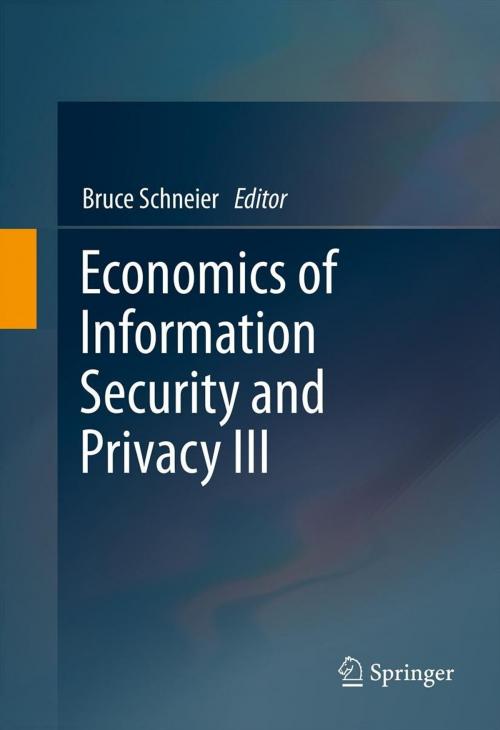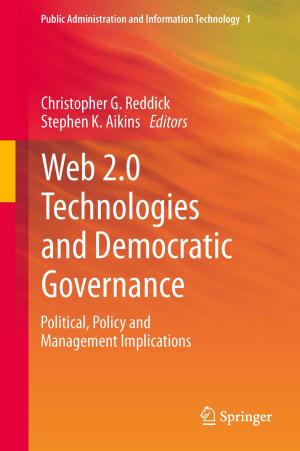Economics of Information Security and Privacy III
Nonfiction, Computers, Networking & Communications, Computer Security, Operating Systems, Application Software| Author: | ISBN: | 9781461419815 | |
| Publisher: | Springer New York | Publication: | September 25, 2012 |
| Imprint: | Springer | Language: | English |
| Author: | |
| ISBN: | 9781461419815 |
| Publisher: | Springer New York |
| Publication: | September 25, 2012 |
| Imprint: | Springer |
| Language: | English |
The Workshop on the Economics of Information Security (WEIS) is the leading forum for interdisciplinary scholarship on information security, combining expertise from the fields of economics, social science, business, law, policy and computer science. Prior workshops have explored the role of incentives between attackers and defenders, identified market failures dogging Internet security, and assessed investments in cyber-defense. Current contributions build on past efforts using empirical and analytic tools to not only understand threats, but also strengthen security through novel evaluations of available solutions. Economics of Information Security and Privacy III addresses the following questions: how should information risk be modeled given the constraints of rare incidence and high interdependence; how do individuals' and organizations' perceptions of privacy and security color their decision making; how can we move towards a more secure information infrastructure and code base while accounting for the incentives of stakeholders?
The Workshop on the Economics of Information Security (WEIS) is the leading forum for interdisciplinary scholarship on information security, combining expertise from the fields of economics, social science, business, law, policy and computer science. Prior workshops have explored the role of incentives between attackers and defenders, identified market failures dogging Internet security, and assessed investments in cyber-defense. Current contributions build on past efforts using empirical and analytic tools to not only understand threats, but also strengthen security through novel evaluations of available solutions. Economics of Information Security and Privacy III addresses the following questions: how should information risk be modeled given the constraints of rare incidence and high interdependence; how do individuals' and organizations' perceptions of privacy and security color their decision making; how can we move towards a more secure information infrastructure and code base while accounting for the incentives of stakeholders?















